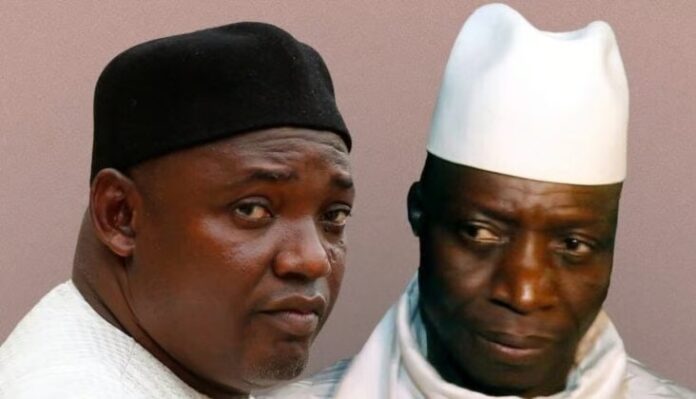Nearly nine years after fleeing to Equatorial Guinea under ECOWAS pressure, former Gambian president Yahya Jammeh has declared his intent to return home. Once hailed as a democratic miracle, his exile now appears fragile—and reversible.
“No One Can Stop Me”
In October, Jammeh defiantly told supporters he would return to The Gambia, daring President Adama Barrow to intervene. His allies followed up with letters to regional bodies, claiming his homecoming would promote peace and unity. But for many Gambians, his legacy of torture, repression, and mysticism remains fresh—and frightening.
Exile in Isolation
Jammeh lives in Mongomo, Equatorial Guinea, under the protection of President Obiang. But with Obiang aging and his son Teodorín taking charge, Jammeh’s sanctuary is increasingly uncertain. Teodorín has no ties to Jammeh and little interest in preserving his father’s political favors.
A Weakened ECOWAS
The regional bloc that once ousted Jammeh is now fractured. Coups in Mali, Burkina Faso, and Niger have eroded ECOWAS’s authority. Senegal’s new leadership under President Faye is focused inward, unlikely to intervene militarily as Macky Sall once did.
Domestic Fragility
The Gambia’s military remains a mixed bag—some officers loyal to Jammeh, others scarred by his regime. Security-sector reform has stalled, and Barrow’s reliance on Senegalese troops for personal protection signals mistrust in national forces.
Jammeh’s Lingering Influence
In rural Foni, Jammeh’s image still inspires loyalty. Disillusionment with slow reforms and economic hardship fuels nostalgia. His legacy, built on fear and spectacle, remains embedded in the national psyche.
Whether Jammeh crosses the border or simply stirs anxiety from afar, The Gambia faces a reckoning. The question is no longer if he’ll return—but who, if anyone, can stop him.

